Hanguana Blume
bakong, common hanguana, common susum, bakong rimba
Hanguanaceae
Australia, tropical Asia and Malesia
Hanguana major Airy Shaw
H. malayana (Jack) Merr. [previously known as Hanguana malayana subsp. anthelminthica (Blume) Backer]
information not available
not weedy
large, terrestrialterrestrial:
(adj) growing on land as opposed to living in water
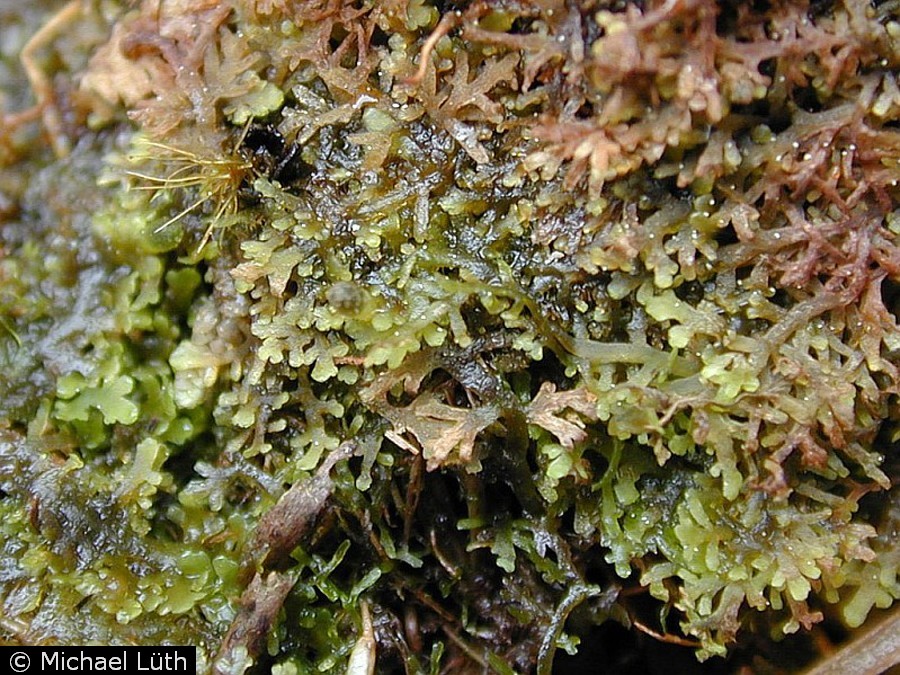 , free-floating, or emergentemergent:
, free-floating, or emergentemergent:
(adj) (syn. emersed) with parts raised out of the water; extending up out of the water
 herb
herb
Ascending to erect. Perennialperennial:
(adj) (of a plant) having a life cycle of more than two years
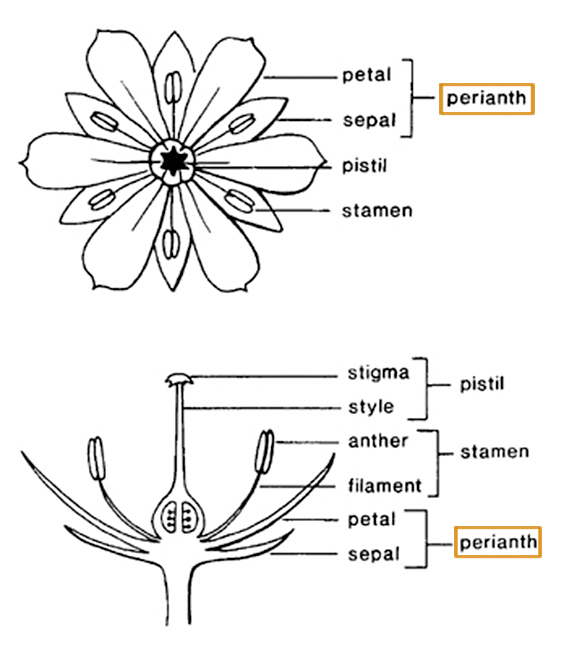 , robustly rhizomatousrhizomatous:
, robustly rhizomatousrhizomatous:
(adj) possessing rhizomes
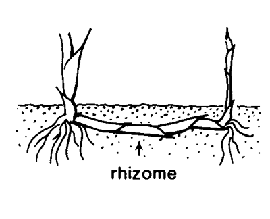 . Leaves mostly basalbasal:
. Leaves mostly basalbasal:
(adj) at or pertaining to the base, or point of attachment
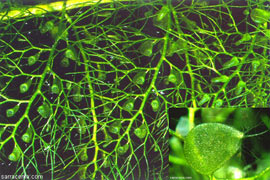 , erect, leathery; becoming glabrousglabrous:
, erect, leathery; becoming glabrousglabrous:
(adj) without hairs or scales
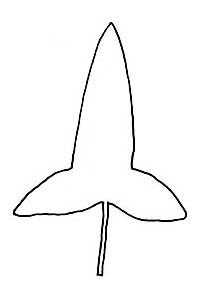 ; leaf blades lanceolatelanceolate:
; leaf blades lanceolatelanceolate:
(adj) lance-shaped; widest point below the middle, tapering to the apex
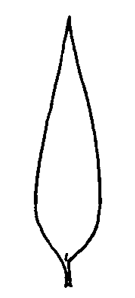 ; with sheathing petiolar bases, rolled unilaterally in budbud:
; with sheathing petiolar bases, rolled unilaterally in budbud:
(n) an embryonic meristem (dividing cell-mass) enclosed in small, protective scales, that develops into a flower, leaf or another stem
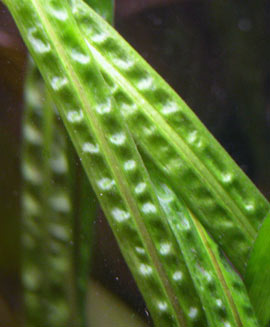 ; venationvenation:
; venationvenation:
(n) the arrangement of veins in a leaf
 ± parallel with prominent midribmidrib:
± parallel with prominent midribmidrib:
(n) the main or central vein, line or rib in a leaf or perianth segment
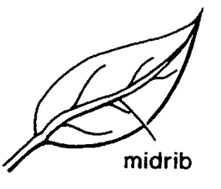 . Inflorescenceinflorescence:
. Inflorescenceinflorescence:
(n) the arrangement of flowers on the floral axis
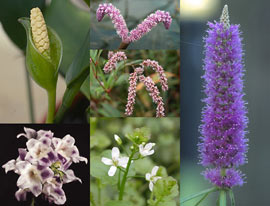 a terminalterminal:
a terminalterminal:
(adj) at the apex
 branched paniclepanicle:
branched paniclepanicle:
(n) an indeterminate, branched (often much-branched) inflorescence; the ultimate units may be of a different inflorescence type
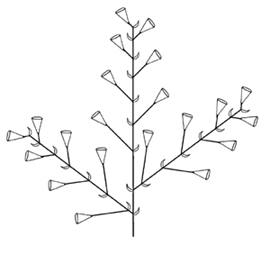 on a prominent pedunclepeduncle:
on a prominent pedunclepeduncle:
(n) the stalk of a flower cluster or inflorescence
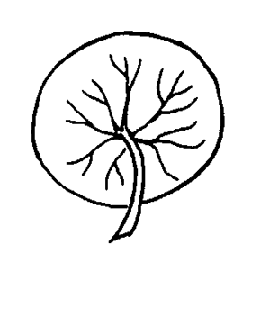 . Flowers sessilesessile:
. Flowers sessilesessile:
(adj) attached directly, without a stalk
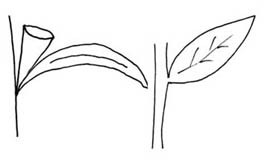 ; tepals 6, outer 3 shorter than inner 3, ovateovate:
; tepals 6, outer 3 shorter than inner 3, ovateovate:
(adj) egg-shaped in outline; generally with the broad end at or near the base
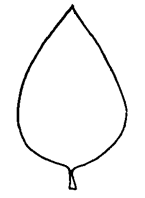 ; green. Male flower stamens 6, inserted at tepaltepal:
; green. Male flower stamens 6, inserted at tepaltepal:
(n) a member of the perianth, when it cannot be differentiated into a calyx and corolla; used primarily for monocot flowers
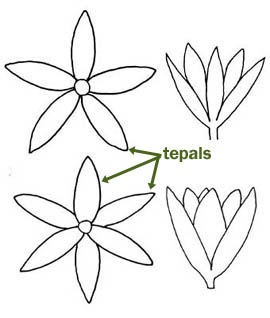 base; pistillodepistillode:
base; pistillodepistillode:
(n) a sterile pistil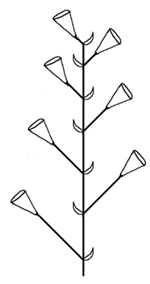 small, central, with basalbasal:
small, central, with basalbasal:
(adj) at or pertaining to the base, or point of attachment
 nectarynectary:
nectarynectary:
(n) a specialized gland producing nectar
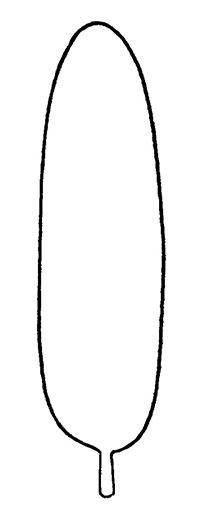 . Female flower staminodes 6, lacking anthers, with nectaries; ovaryovary:
. Female flower staminodes 6, lacking anthers, with nectaries; ovaryovary:
(n) a hollow organ at the base of the carpel of a flower in which ovules are produced
 ovoidovoid:
ovoidovoid:
(adj) egg-shaped in three dimensions
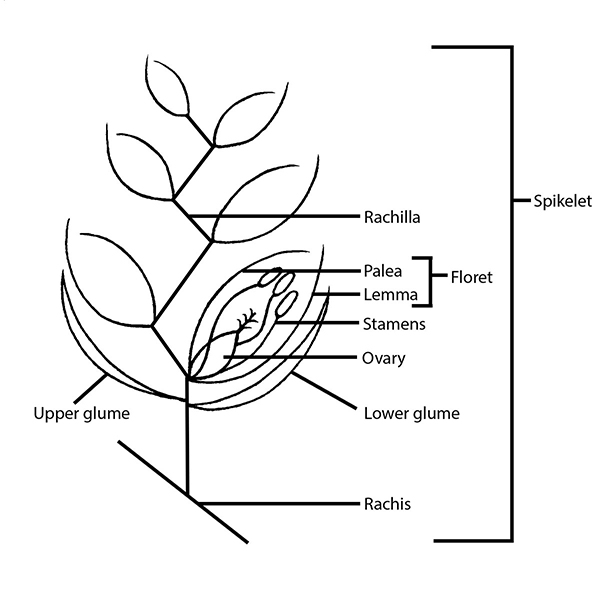 to globoseglobose:
to globoseglobose:
(adj) spherical or nearly so
 , stigmastigma:
, stigmastigma:
(n) the portion of the pistil that is receptive to pollen
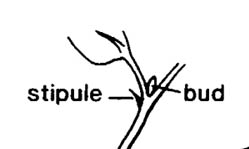 sessile, 3-lobed. Drupedrupe:
sessile, 3-lobed. Drupedrupe:
(n) fleshy indehiscent fruit in which the seed or seeds are surrounded by a hardened endocarp (as in a cherry)
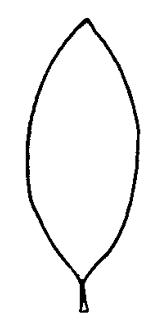 blackish; ellipsoid to globular; stigmastigma:
blackish; ellipsoid to globular; stigmastigma:
(n) the portion of the pistil that is receptive to pollen
 lobes persistentpersistent:
lobes persistentpersistent:
(adj) (of leaves etc,) remaining attached; not being dropped or falling off
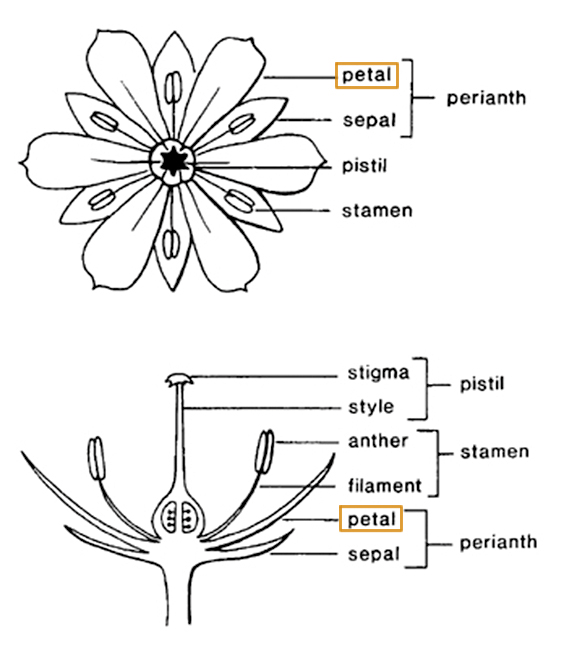 at apexapex:
at apexapex:
(n) the point farthest from the point of attachment; the tip (often pointed)
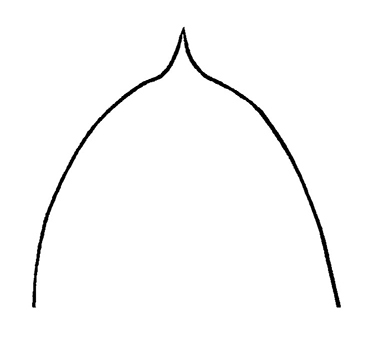 .
.
wide range of wetland and terrestrialterrestrial:
(adj) growing on land as opposed to living in water
 habitats; from swamps, marshes, margins of freshwater bodies, and ditches to pools
habitats; from swamps, marshes, margins of freshwater bodies, and ditches to pools
The family Hanguanaceae contains only this genus. Of the 10 species in Hanguana, the helophytic members are Hanguana major Airy Shaw, H. nitens Siti Nurfazilah, Mohd Fahmi, Sofiman Othman & P.C.Boyce, and H. malayana (Jack) Merr.